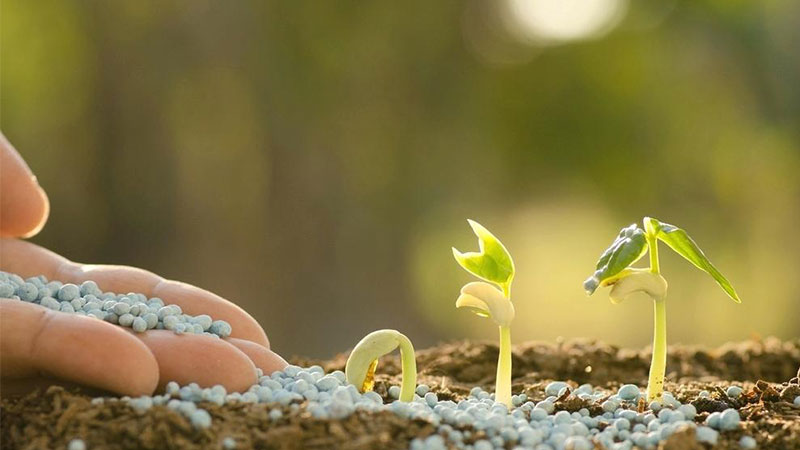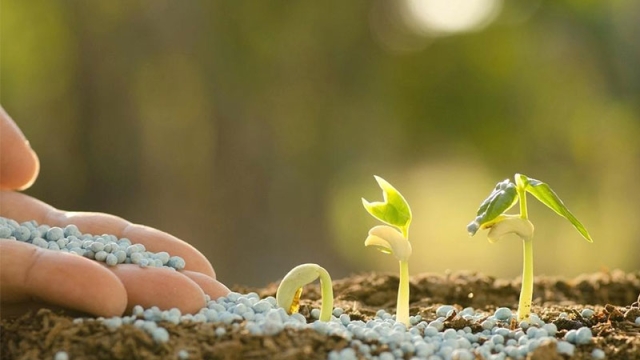Creating a sustainable garden is a rewarding endeavor that allows us to connect with nature while nurturing our surroundings. When it comes to cultivating a thriving garden, the power of organic soils and fertilizers cannot be overlooked. By harnessing the nutrients and benefits provided by these natural elements, we can promote long-term soil health and cultivate vibrant, eco-friendly gardens.
Organic soils, unlike their conventional counterparts, are free from synthetic additives and chemicals. Rich in organic matter such as decomposed plant material, compost, and well-rotted manure, these soils are a treasure trove of nutrients that plants need to thrive. Adopting the use of organic soils not only provides an optimal growing medium for our plants, but it also helps to promote a healthy ecosystem underground, where countless microorganisms tirelessly work to enrich the soil.
Likewise, organic fertilizers are derived from natural sources such as compost, animal by-products, and mineral deposits. These fertilizers supply plants with the essential nutrients they require, improving their overall health and productivity. An organic approach to fertilizing not only eliminates the risk of toxic chemical runoff but also contributes to the long-term fertility and structure of the soil. This ensures that future generations of plants can continue to flourish.
By embracing the power of organic soils and fertilizers, we can cultivate gardens that not only produce beautiful blooms and bountiful harvests but also make a positive impact on the environment. So let us dig in, nourish our soil, and unleash the potential of organic gardening for a healthier, more sustainable future.
Understanding Organic Soils
A key element in cultivating a sustainable garden is a thorough understanding of organic soils. Organic soils are rich in organic matter, which comes from decomposed plant and animal materials. This natural process enriches the soil with essential nutrients that plants need to thrive.
One of the primary benefits of organic soils is their ability to retain moisture. The organic matter acts as a sponge, absorbing and holding water for longer periods. This is particularly advantageous in areas with limited rainfall or during dry spells when watering may be restricted. Additionally, the increased moisture retention helps to reduce water runoff, preventing soil erosion and nutrient loss.
Moreover, organic soils foster a healthy and diverse ecosystem beneath the surface. They provide a habitat for various beneficial microorganisms, earthworms, and insects that play crucial roles in soil aeration and nutrient cycling. These organisms break down organic matter further, releasing additional nutrients and creating a well-balanced soil environment.
By cultivating and nourishing organic soils, gardeners can unlock the full potential of their green spaces. The enriched soil structure, moisture retention, and vibrant ecosystem contribute to healthier plants, higher yields, and a more sustainable gardening practice overall. Through this understanding, we can harness the power of organic soils to create flourishing gardens that thrive in harmony with the environment.
The Benefits of Organic Fertilizers
Organic fertilizers offer numerous advantages for cultivating a sustainable garden. They are derived from natural sources, such as plant and animal matter, and provide essential nutrients for healthy plant growth. Unlike synthetic fertilizers, organic options nourish the soil, promote beneficial microbial activity, and contribute to long-term soil fertility. Let’s explore the benefits of organic fertilizers in more detail.
- when harvest onions
-
Nutrient-Rich and Environmentally Friendly: Organic fertilizers contain a wide range of nutrients that are slowly released into the soil. These nutrients, including nitrogen, phosphorus, and potassium, are necessary for plants’ growth and development. Additionally, organic options are derived from renewable sources and contribute to a more sustainable approach to gardening. They reduce the risk of nutrient leaching into water sources and minimize the negative impact on the environment.
-
Improves Soil Structure and Water Retention: Organic fertilizers have the remarkable ability to improve the structure of the soil. Their organic matter content enhances soil aggregation, allowing for better aeration and root penetration. This, in turn, promotes a healthy root system and leads to stronger, more resilient plants. Furthermore, organic fertilizers increase the soil’s capacity to retain water, reducing the need for excessive irrigation and conserving this precious resource.
-
Supports Beneficial Soil Microbes: An essential advantage of organic fertilizers is their ability to foster a thriving community of beneficial soil microorganisms. These microorganisms, such as bacteria, fungi, and earthworms, play a crucial role in breaking down organic matter and making nutrients more accessible to plants. By providing a favorable environment for these microbes, organic fertilizers promote biological activity in the soil and establish a naturally balanced ecosystem.
In conclusion, organic fertilizers offer an array of benefits for sustainable gardening practices. Their nutrient-rich composition, positive impact on soil structure and water retention, as well as their support of beneficial soil microbes, make them a valuable choice for cultivating healthy and environmentally friendly gardens. Consider incorporating organic fertilizers into your gardening routine to unleash the power of organic soils and fertilizers.
Implementing Sustainable Gardening Practices
In order to cultivate a sustainable garden using organic soils and fertilizers, it is crucial to implement certain practices that promote the health of the soil and minimize negative impacts on the environment.
Enhancing Soil Health
One of the key aspects of sustainable gardening is ensuring the health of the soil. Organic soils, enriched with organic matter such as compost or decomposed plant materials, provide essential nutrients to the plants while retaining moisture and promoting proper drainage. By regularly amending the soil with organic matter, gardeners can improve its structure and fertility, leading to healthier plants and increased biodiversity.
Minimizing Chemical Inputs
To maintain a sustainable garden, it is important to minimize the use of chemical fertilizers and pesticides that can harm both the environment and beneficial organisms in the soil. Instead, organic fertilizers derived from natural sources, such as compost, manure, or seaweed extracts, can be utilized. These alternatives not only provide essential nutrients but also contribute to the overall health of the soil and minimize the risk of chemical runoff, which can contaminate water sources.

Companion Planting and Crop Rotation
Implementing companion planting and crop rotation techniques can further enhance the sustainability of a garden. Companion planting involves growing certain plants together to enhance their growth, improve pest resistance, and promote biodiversity. Similarly, crop rotation helps prevent the buildup of pests and diseases by alternating the planting of different crops in specific areas of the garden. These practices reduce the dependence on chemical interventions and contribute to a more balanced ecosystem within the garden.
By implementing sustainable gardening practices such as enhancing soil health, minimizing chemical inputs, and utilizing companion planting and crop rotation techniques, gardeners can unlock the true potential of organic soils and fertilizers. Cultivating a sustainable garden not only promotes environmental stewardship but also allows for the creation of a thriving and resilient ecosystem.
